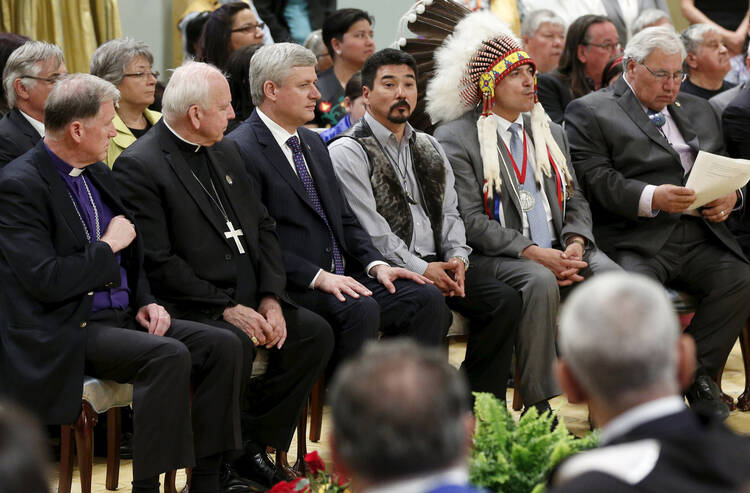A Canadian government investigation used the term “cultural genocide” to describe the experience of aboriginal people, advising that reconciliation within the country “is going to take hard work.” Canada’s Truth and Reconciliation Commission on June 2 called for changes at all levels of society and government. Aboriginal schools were established and paid for by the Canadian government in the late 1800s but were administered by church organizations of several religions, including the Catholic Church, which ran about 60 percent of them. “States that engage in cultural genocide set out to destroy the political and social institutions of the targeted group. Land is seized and populations are forcibly transferred and their movement is restricted. Languages are banned. Spiritual leaders are persecuted, spiritual practices are forbidden, and objects of spiritual value are confiscated and destroyed. And, most significantly to the issue at hand, families are disrupted to prevent the transmission of cultural values and identity from one generation to the next.” According to the report, “In its dealing with aboriginal people, Canada did all these things.”
Truth-Telling
Show Comments (
)
Comments are automatically closed two weeks after an article's initial publication. See our comments policy for more.
The latest from america
On Friday, Pope Leo XIV issued a statement on the theme "Migrants, missionaries of hope."
In Steven Spielberg’s “Close Encounters of the Third Kind,” an ordinary electrician has a transcendent encounter—with U.F.O.s, not God.
Many of my acquaintances have given up “reading about something that didn't happen.” But fiction has long-term and concrete value, both mentally and socially.
The archbishop assured migrants in a pastoral letter that “the Church is a community of faith, and the divine person of Christ, who was forced to flee his homeland as a child, holds you in his compassionate arms.”








